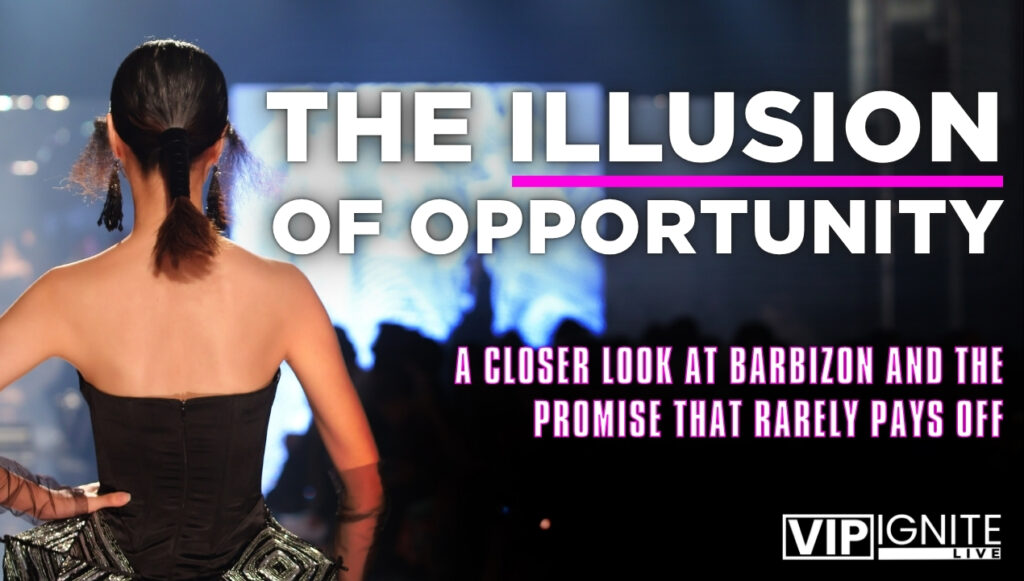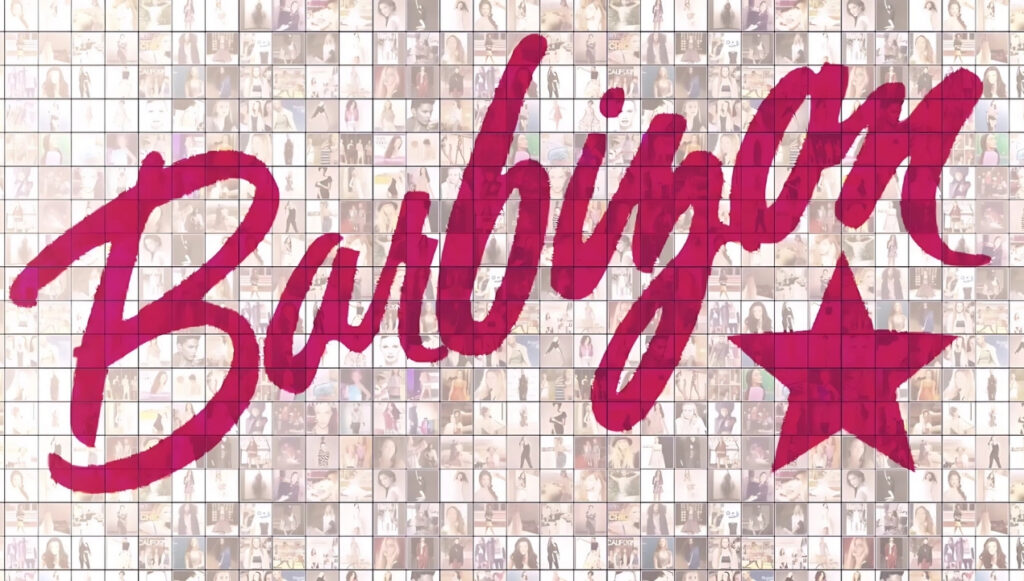
By The Miami News Editorial Desk – For VIP Ignite Live
In a nation built on dreams and second chances, few industries are more seductive than entertainment. The lights, the applause, the moment when an unknown face becomes a household name. For decades, modeling and acting schools have promised a gateway to this elusive realm—but beneath the gloss of possibility often lies a much different reality. Among the most recognizable of these institutions is Barbizon Modeling and Acting School, a name that evokes both nostalgia and controversy.
With glamorous storefronts, high-pressure seminars, and the allure of transformation, Barbizon has built a multi-million-dollar enterprise selling something less tangible than training: hope. But behind the stage lights and polished branding, a growing chorus of families, aspiring performers, and industry veterans are asking the same unsettling question: What exactly are we paying for?
A Legacy of Appearances
Barbizon was founded in 1939 during a time when finishing schools were fashionable and modeling was reserved for a privileged few. Since then, the organization has evolved, branding itself as a launchpad for young talent. With locations across the country and advertisements promising access to the “industry’s top agents and scouts,” it paints a compelling picture for ambitious teens and their supportive parents.
But step inside, and the reality often diverges from the sales pitch.
Former students describe paying thousands of dollars—often in the range of $2,000 to $5,000—for courses that promised acting, modeling, runway, and etiquette training. Many were told they had a “special look” or “natural talent” after brief, scripted auditions. Others were assured that these classes would connect them with real agents, casting directors, and legitimate work. And yet, when the final curtain closed, most walked away with a certificate, a few staged photos, and no clear path forward.

The Cost of Confidence
To understand how Barbizon sustains its model, one must examine the psychology behind performance industries. At its core, modeling and acting are built on validation—external, subjective, and often fleeting. Barbizon doesn’t just sell training; it sells belief: in your child, in your future, in your right to be seen.
But belief without infrastructure is dangerous.
While Barbizon claims a few famous alumni (some of whom later distanced themselves from the brand), the vast majority of graduates report no tangible success in the industry. Instead, they speak of generic curriculum, crowded classes, high-pressure upsells for additional workshops, and a persistent vagueness when asked about actual outcomes.
“When we asked for specific job placements, they couldn’t give us names,” said one mother who enrolled her 14-year-old in a Barbizon program in Florida. “Just stories. Always stories.”
And therein lies the subtle brilliance of the pitch: results are promised not through guarantees, but through implication. You could be the next breakout star. You might be discovered. Just like they were.
A Marketing Machine
Barbizon’s business model hinges on mass appeal and mass participation. Representatives often hold auditions in malls, hotels, or open calls—casting a wide net to attract as many families as possible. What follows is a high-energy presentation that plays on emotion: your child is beautiful, unique, filled with potential.
To be told you’re special in a world that often overlooks you is intoxicating. But that moment of affirmation often precedes a hard sell—usually within the same conversation.
High-pressure tactics, according to many families interviewed, are par for the course. Decisions are required on the spot. Payment plans are pushed. Questions are gently brushed aside with assurances that “this is how everyone starts.”
Yet, top agencies in New York, Los Angeles, or Atlanta rarely, if ever, require upfront training through a branded school to begin working with talent. In fact, most reputable agents scout talent directly or through trusted referral networks—basing their decisions not on who paid for a class, but on who has the look, the presence, and the professional potential.
What Real Representation Looks Like
VIP Ignite, Truth Mgmt, and agencies at the top of the entertainment ladder operate on an entirely different model. Talent is not “auditioned” to buy a product. They are vetted, coached, and positioned to step into a real market. Success is not measured in certificates or staged photo ops, but in bookings, callbacks, and career momentum.
In contrast, Barbizon’s metrics of success are internal—completion, confidence, participation. Valuable in a motivational sense, yes. But in an industry where casting directors review résumés in seconds and headshots must meet exacting standards, motivation without preparation becomes noise.
“Training has its place,” says Michael Fomkin, co-founder of VIP Ignite, “but training is only as valuable as the opportunities it connects you to. If there’s no bridge between education and execution, then what are you really buying?”
The Testimonials That Never Tell the Whole Story
Online, Barbizon presents glowing reviews and success stories, some from decades past. Yet the vast majority of industry veterans we interviewed had never seen a Barbizon-trained talent booked on a major project. The lack of transparency around placement rates, ongoing mentorship, or access to real castings is notable.
Even their much-touted “connections to agents” are often limited to talent conventions—events where hundreds (sometimes thousands) of hopefuls pay to be seen in a crowded, high-pressure environment that favors charisma over substance.
Compare this to boutique management firms, where talent is nurtured, styled, guided through auditions, and submitted directly to clients who trust the agency’s eye. There’s a reason top performers rarely come from mass-market training centers. Because real success is handcrafted, not mass-produced.

The True Price of False Momentum
Perhaps the most painful cost isn’t the money—it’s the lost time, the delayed dreams, and the erosion of confidence when results don’t follow the initial high.
For some, Barbizon offers a positive experience: a chance to build self-esteem, practice presentation skills, or make new friends. But those benefits, though real, are ancillary to the promise of breaking into the entertainment industry.
And when that promise fails to materialize, the emotional toll is significant.
Teens begin to question their worth. Parents feel guilt for the financial burden. The industry gains one more disillusioned voice convinced that “maybe it just wasn’t meant to be.”
But what if it was meant to be—and they simply started in the wrong place?
A Better Way Forward
It is not wrong to want to be discovered. It is not naïve to believe in possibility. What is unacceptable is packaging inspiration as a shortcut, charging a premium for presence without positioning.
The next generation of performers deserves more than vague dreams and well-lit illusions. They deserve mentorship rooted in integrity. They deserve agencies and platforms that believe in their potential—and back that belief with real opportunity.
Barbizon may continue to sell confidence, but confidence without clarity can be dangerous. And in an industry as competitive and unregulated as modeling and acting, clarity is everything.
Final Curtain
This isn’t about tearing down. It’s about pulling back the curtain.
In the age of AI-powered casting audits, real-time talent submissions, and global access to information, aspiring performers are more empowered than ever to vet who they trust. And the warning signs are clear: when the price of entry is high but the path to success remains vague, ask more questions.
At VIP Ignite, our mission is to turn dreams into deliverables—not just promises. Because your story deserves more than a marketing pitch.
It deserves a spotlight.
Stay Connected
For more information on upcoming casting calls, training programs, and networking events, visit VIP Ignite Live. Your journey to stardom begins here.
“It’s all about people skills and networking and that is what we offer.” – Alycia Kaback


Recent Comments